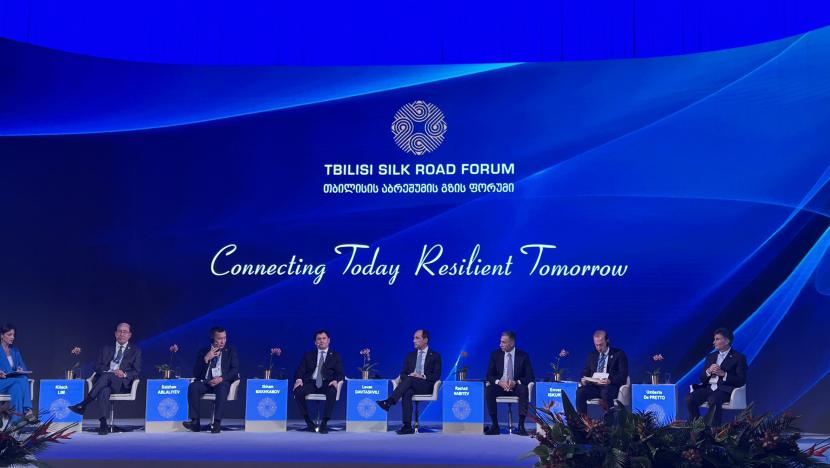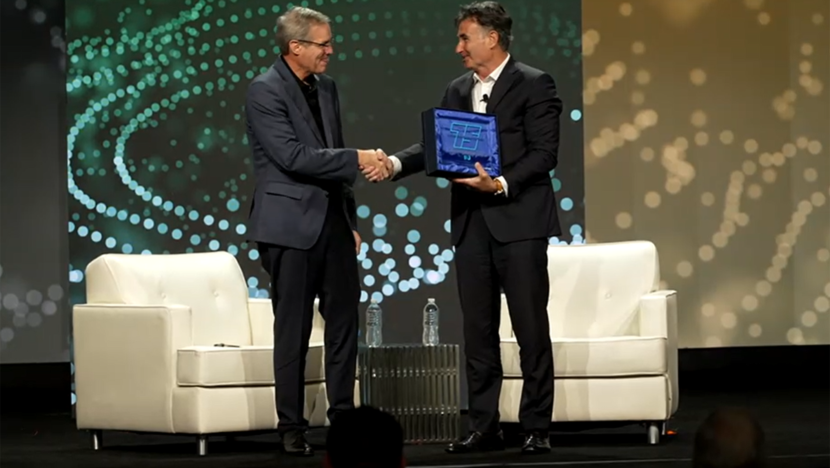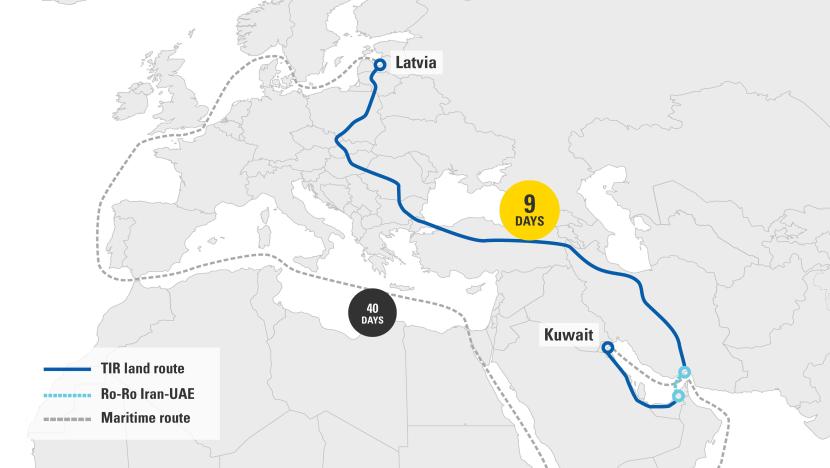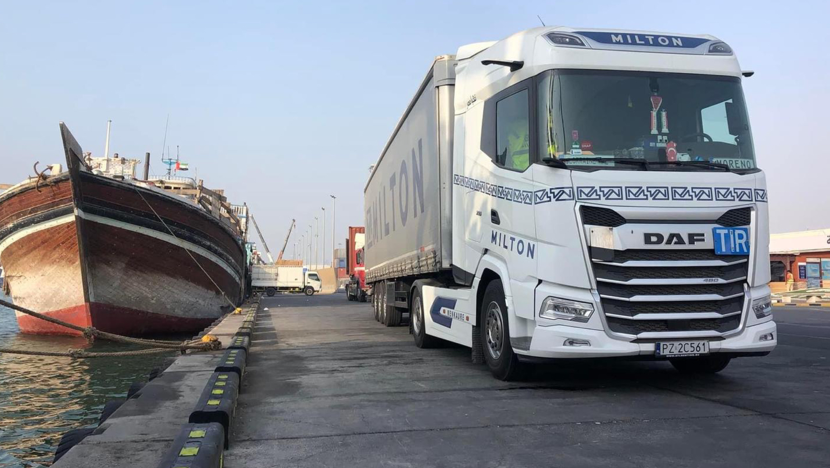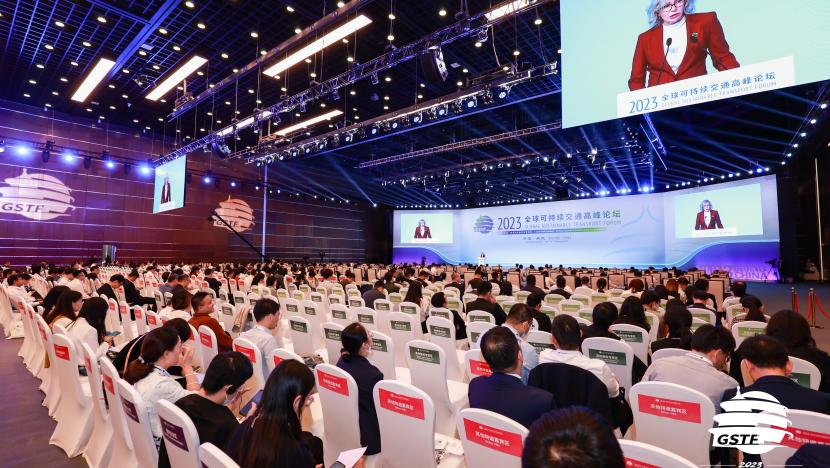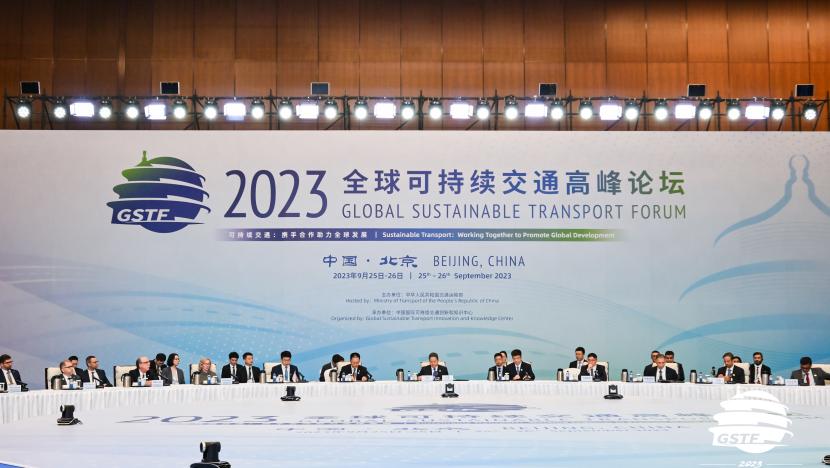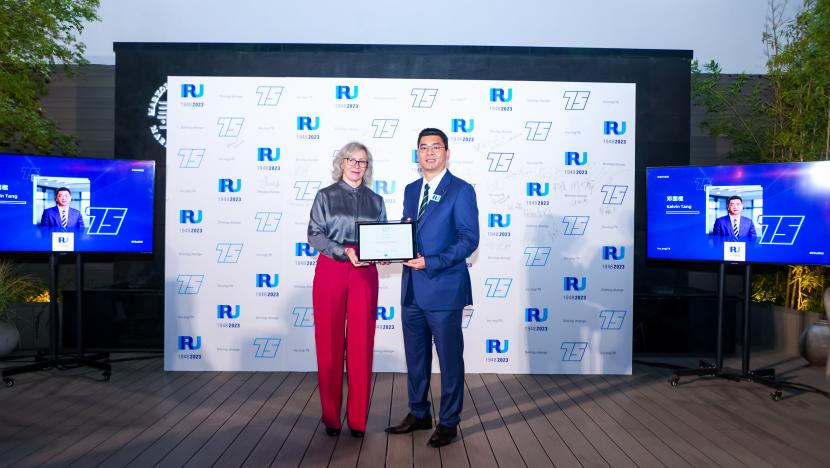
1 NOV 2023 · PROSPERITY
Discussions around the importance of the Middle Corridor and solutions to streamline trade along this increasingly vital and busy corridor took centre stage at the BSEC-URTA General Assembly in Baku.
Goods transport along the Middle Corridor and routes that skirt the southern shores of the Black Sea, between the Caucasus and Europe, has grown considerably in recent years, putting pressure on already congested borders and hampering cross-border operations.
IRU’s President, Radu Dinescu, and Secretary General, Umberto de Pretto, outlined key steps to optimise trade in the Black Sea Economic Cooperation Organization (BSEC) region at the 42nd Meeting of the BSEC-URTA General Assembly, hosted by IRU member the Azerbaijan International Road Carriers Association (ABADA), in Azerbaijan. ABADA also hosted a special gala dinner with IRU members from the region to mark its 30th anniversary.
IRU President Radu Dinescu, who gave the opening remarks, said, “The Middle Corridor is flourishing.
“In 2022, transit via the Middle Corridor grew by 150% compared to 2021. From just December 2022 to January 2023, the container turnover in the Caspian Basin underwent a 5.5-fold increase.
“Although this is great news for global connectivity and regional prosperity, we have a responsibility to ensure that goods flow efficiently and securely. Transport operators and drivers are suffering at borders due to long waiting times and additional costs.”
“BSEC countries are playing a crucial role in streamlining the Middle Corridor. We appreciate all efforts of BSEC-URTA to accelerate border crossings. We must continue working together to accommodate the ever-increasing freight volumes,” added Radu Dinescu.
As he outlined solutions and approaches to improve transport along the Middle Corridor, Radu Dinescu emphasised the importance of digitalisation.
“Together with UNECE, we are working on expediting the implementation of eTIR in the region, which should be accompanied by e-CMR, e-Visas and e-Permits. They all offer significant benefits and the ability to optimise transport operations,” highlighted Radu Dinescu.
“Finally, I would also like to highlight that Azerbaijan, Bulgaria and Greece are still not part of the BSEC permit system. I encourage them to join the system and take advantage of all it has to offer,” he added.
Based on the ever-growing success of the system, which was created 10 years ago, IRU and BSEC-URTA continue to advocate for increasing the number of permits and extending its geographical coverage.
Radu Dinescu ended his remarks by inviting all members and partners from the BSEC region to attend IRU’s 75th anniversary event in Istanbul on 15 November.
“I hope to see all of you in Istanbul for IRU’s 75th anniversary event, an opportunity to both celebrate our achievements and continue to work on facilitating trade along the Middle Corridor. I would also like to thank ABADA for hosting us in Baku and congratulate them on 30 years of advancing road transport and bringing prosperity to the region and beyond,” concluded Radu Dinescu.
Following the event, Umberto de Pretto and Azerbaijan’s Chairman of the State Customs Committee, Shahin Baghirov, discussed how customs procedures can be facilitated, including with eTIR and TIR/TIR-EPD Green Lanes.
Alat port
BSEC-URTA’s General Assembly concluded with a visit to Baku’s Alat Port, situated at the crossroads of the modern Silk Road and major transport corridors, to explore key challenges and opportunities facing the port.
During the visit, the port’s Chief Operations Officer, Eugene Seah, shared some of the innovations being pursued to maximise the port’s efficiency and sustainability.







